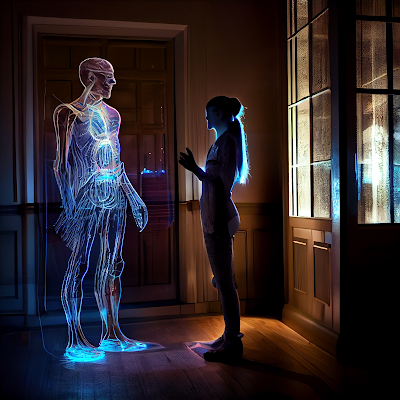The limits of human longevity: What's the oldest possible age a person can reach?
Introduction
Everyone
wants to live a long and healthy life. The oldest recorded age that a human has
reached is 122 years and 164 days. While this is the current oldest recorded
age for a human, scientists believe that the maximum possible age for a human
could be much higher. In this blog post, we will discuss the factors that
determine the maximum possible age for a human and the advancements in
technology and medicine that could lead to increased longevity.
Genetics
Genetics is
one of the factors that determine the maximum possible age for a human. Some
people are born with genetic mutations that allow them to live longer than
others. A mutation in the FOXO3A gene has been linked to increased longevity in
some populations. Additionally, some people are born with mutations in their
telomeres, the protective caps on the ends of chromosomes, that may allow them
to live longer.
Lifestyle
Lifestyle is
another factor that determines the maximum possible age for a human. People who
live healthy lifestyles, with a balanced diet, regular exercise, and low stress
levels, are more likely to live longer than those who do not. Additionally,
people who avoid smoking, excessive alcohol consumption, and environmental
toxins also tend to live longer.
Advancements in technology and
medicine
The
possibility of living longer than current records is also based on the
advancements in technology and medicine. Advances in medical treatments and
disease management have led to increased survival rates for many diseases and
conditions. For example, treatments for cancer and heart disease have greatly
improved in recent years, allowing people to live longer with these conditions.
Additionally, the development of new technologies such as gene therapy and
regenerative medicine could also lead to increased longevity in the future.
Quality of life
It is
important to note that living longer does not necessarily mean living
healthier. Many people who live to very old ages suffer from chronic diseases
and disabilities. In addition, the quality of life in old age is also a crucial
aspect of longevity.
Conclusion
The human
body is a complex machine and it is difficult to predict the maximum possible
age for a human. It is possible that with advancements in technology and
medicine, the maximum possible age for a human could continue to increase.
However, it is important to remember that living a long life is not just about
reaching a certain age, but also about maintaining good health and quality of life.
By leading a healthy lifestyle, avoiding environmental toxins, and staying
up-to-date on medical advancements, we can increase our chances of living a
longer, healthier life.














Comments
Post a Comment